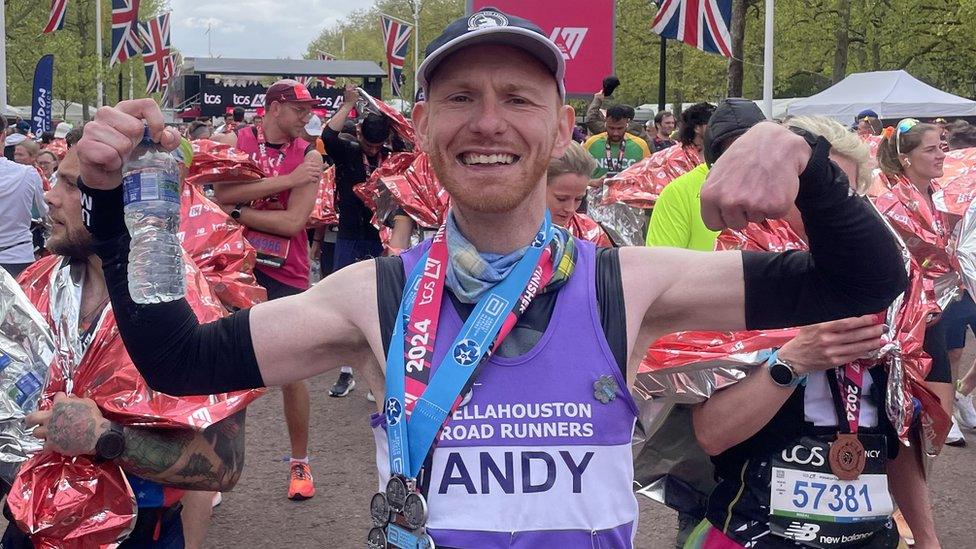'Bullies inspired me to run 1,000 marathons'
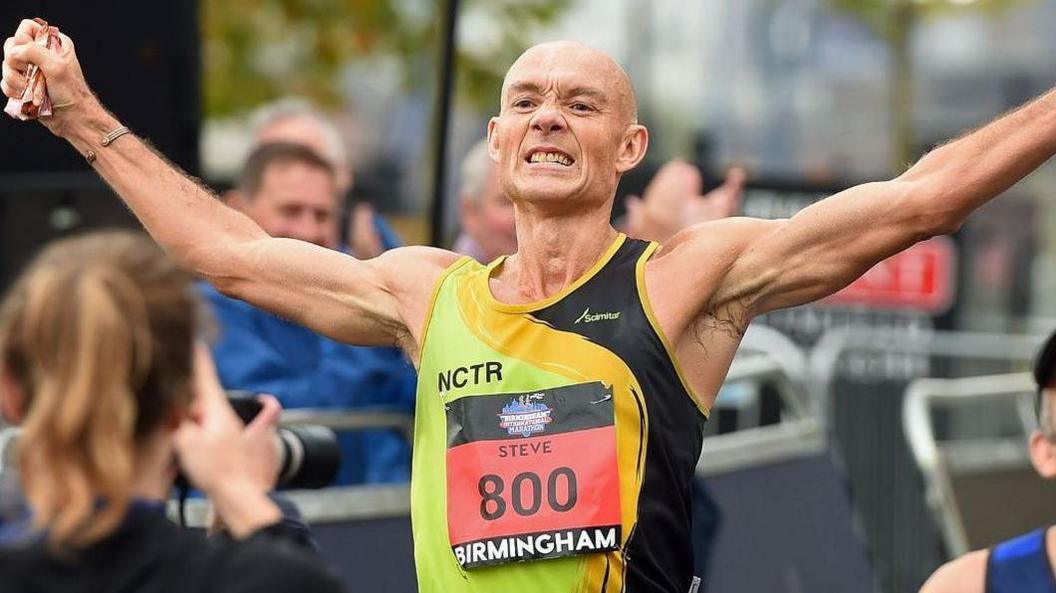
Steve Edwards is one of the most successful multi-marathon runners in the world
- Published
For most people, running a marathon is a huge achievement – something to tick off the bucket list.
For 61-year-old Steve Edwards, though, it has become something of an obsession.
He is about to run his 1,000th 26.2-mile race - something only 50 people in the world have accomplished.
But what drives him, and with each race getting harder and harder, could this be his last?
Steve ran his first marathon, in Coventry, in 1981 as a "naive" 18-year-old after seeing a poster at his local gym.
"I hadn't a clue about what a marathon entailed or how to prepare," he says.
"But I guess you could say that ignorance is bliss because I went into it open-eyed and just looking forward to it."
Despite having just five weeks to prepare, Steve finished in a respectable three hours and 38 minutes, but admits he struggled beyond mile 15.
"The next day I got out of bed and my legs were like gate posts," he laughs. "I couldn't walk properly for a week and I vowed never to do it again."
He soon forgot that pledge. Steve enjoyed the "runner's high", external so much he gave up kung fu, and, like many others during the running boom of the 1980s, joined a running club.
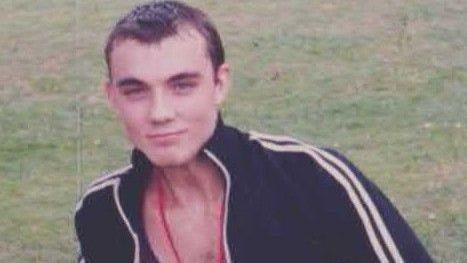
The day after his first marathon, Steve he had to walk down the stairs backwards, he says
Over the next four decades, Steve would accomplish countless world records and some truly staggering achievements.
He has, on average, run an official marathon every 13 days for the past 36 years, with a combined distance of more than 26,000 miles (41,800km) – further than the circumference of the earth.
In the marathon world he is known as 'The Godfather', and completing 1,000 marathons in the fastest ever average finish time will certainly cement his place in history.
But what is arguably most telling is that every race Steve has entered, he has finished.
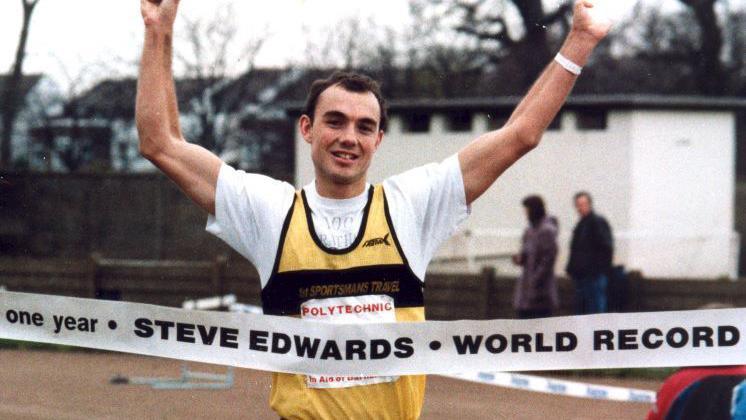
In 1992, Steve set a world record for running 87 marathons in one year
The retired IT worker from Longborough, Gloucestershire, thinks his unwavering determination and strength is a result of being picked on at school.
Born with a deformed left hand, he "suffered at the hands of bullies for many years".
"Growing-up I was always saying 'I am capable, I can do this'," he says.
"Running gave me a new type of self-confidence that I didn't have in my school years and I'm now very resilient and stubborn."
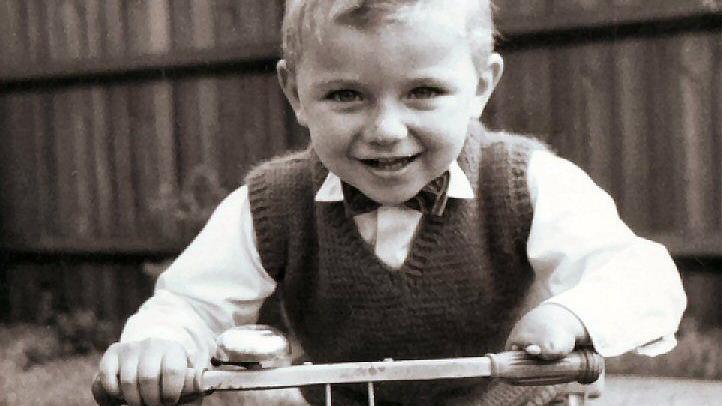
Steve was born with a deformed left hand
In 2010, Steve ran his 500th marathon and planned to stop competing.
"I was worn out," he says. "But on the way home I said to my wife 'I think I've got a few more in me.'"
He hoped to complete his 1,000th marathon in 2022, the year he turned 60. However, during the Covid-19 pandemic many races were cancelled and he soon lost his motivation.
Despite still training, including weightlifting, six days a week, his body never fully recovered from "all the wear and tear" and he was close to giving up.
"People think I'm a machine," he says. “But sometimes getting out of bed and taking those first few steps to go to the toilet or get a cup of tea I feel like I'm not capable of running one mile, let alone 26.
"It now takes me a good few miles to find a rhythm... and I find that I'm getting anxious the day before a race."
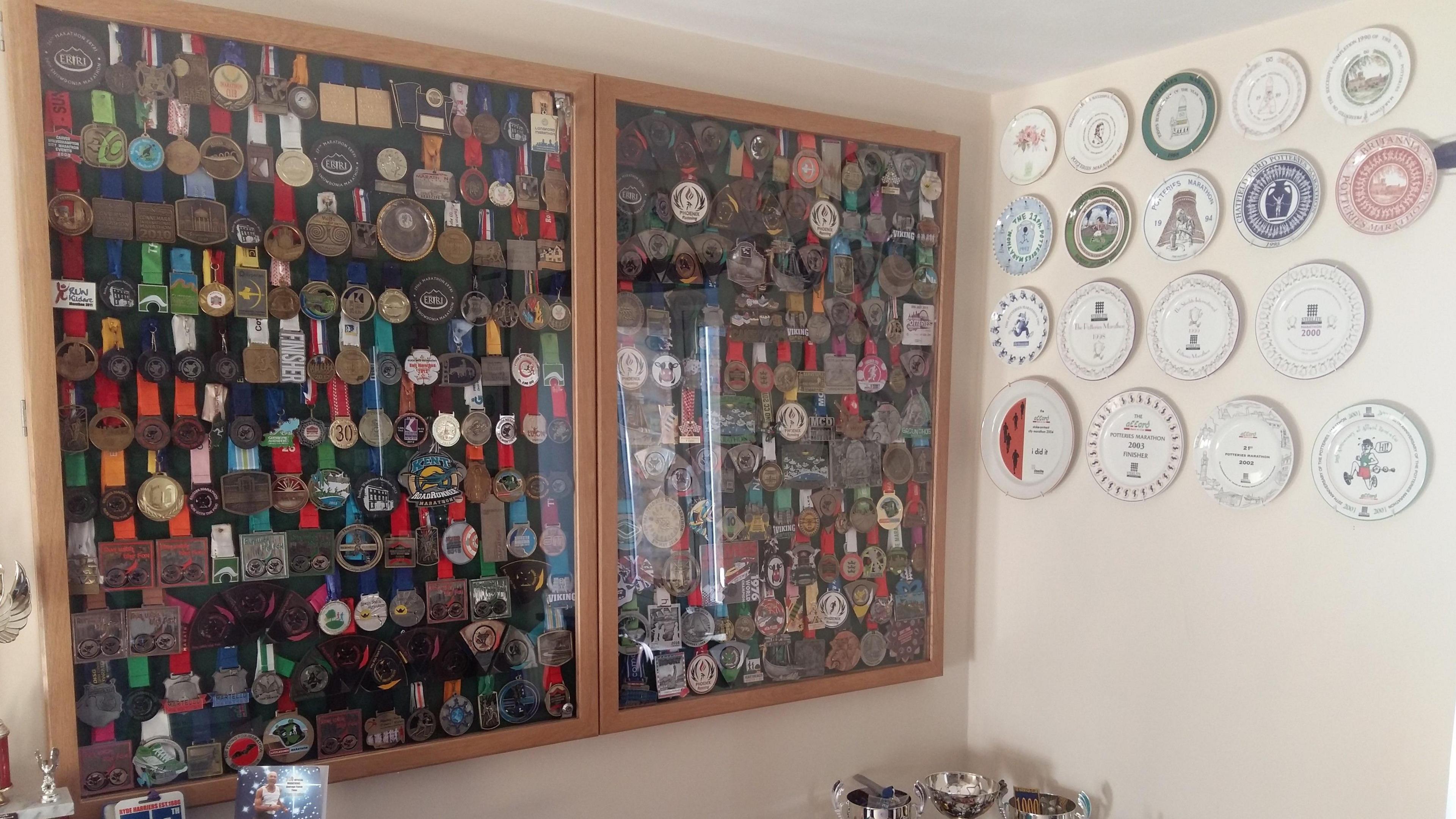
In order to receive a Guinness World Record, Steve has only entered officially recognised races
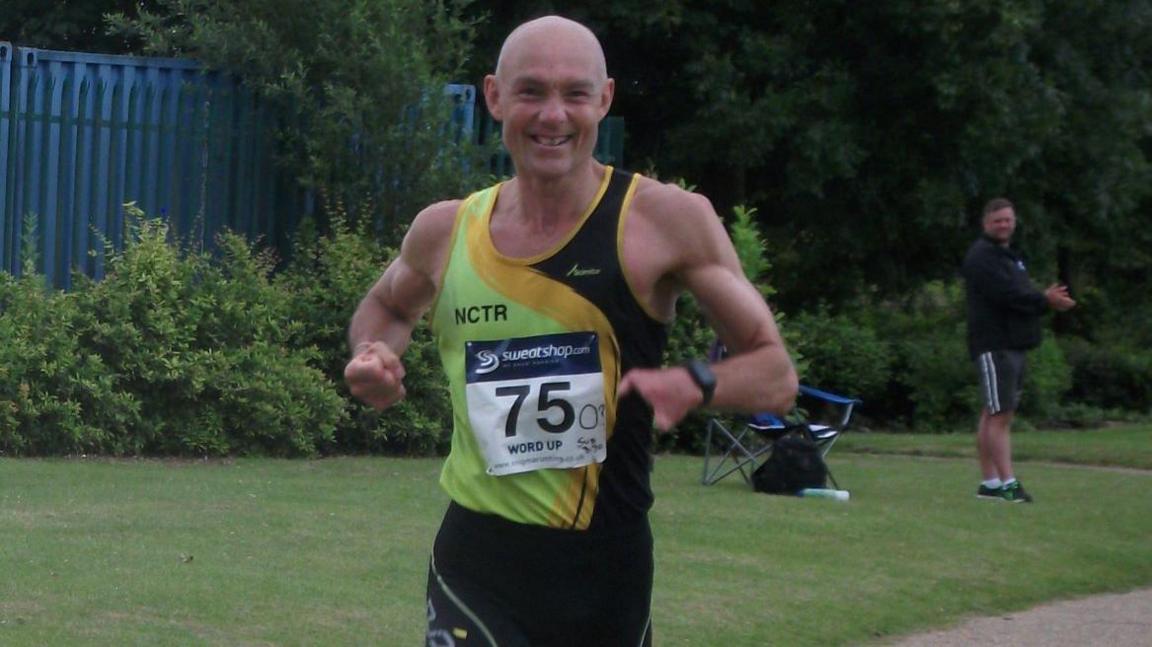
Steve hopes to complete 1,000 marathons with an average finish time of under three hours 22 minutes
At 09:00 BST on Monday, Steve will be joined by dozens of supporters as he sets off to complete a challenge 43 years in the making.
He says he chose Milton Keynes Marathon for the finale as he has completed more races there than anywhere else.
Asked how he might feel once the race is over, he chokes up and tears fill his eyes.
"I don't think it's quite hit me yet what it's going to feel like," he says.
"Because I know the day after I'll be thinking 'It's all over'. Part of me gets emotional about it."
Steve is still unsure whether he will continue running competitively.
He says he has promised his wife Teresa he will stop taking part in challenges.
"A part of me is looking forward to not having to train," he adds. "I might pick it up again after a break, but I might not."
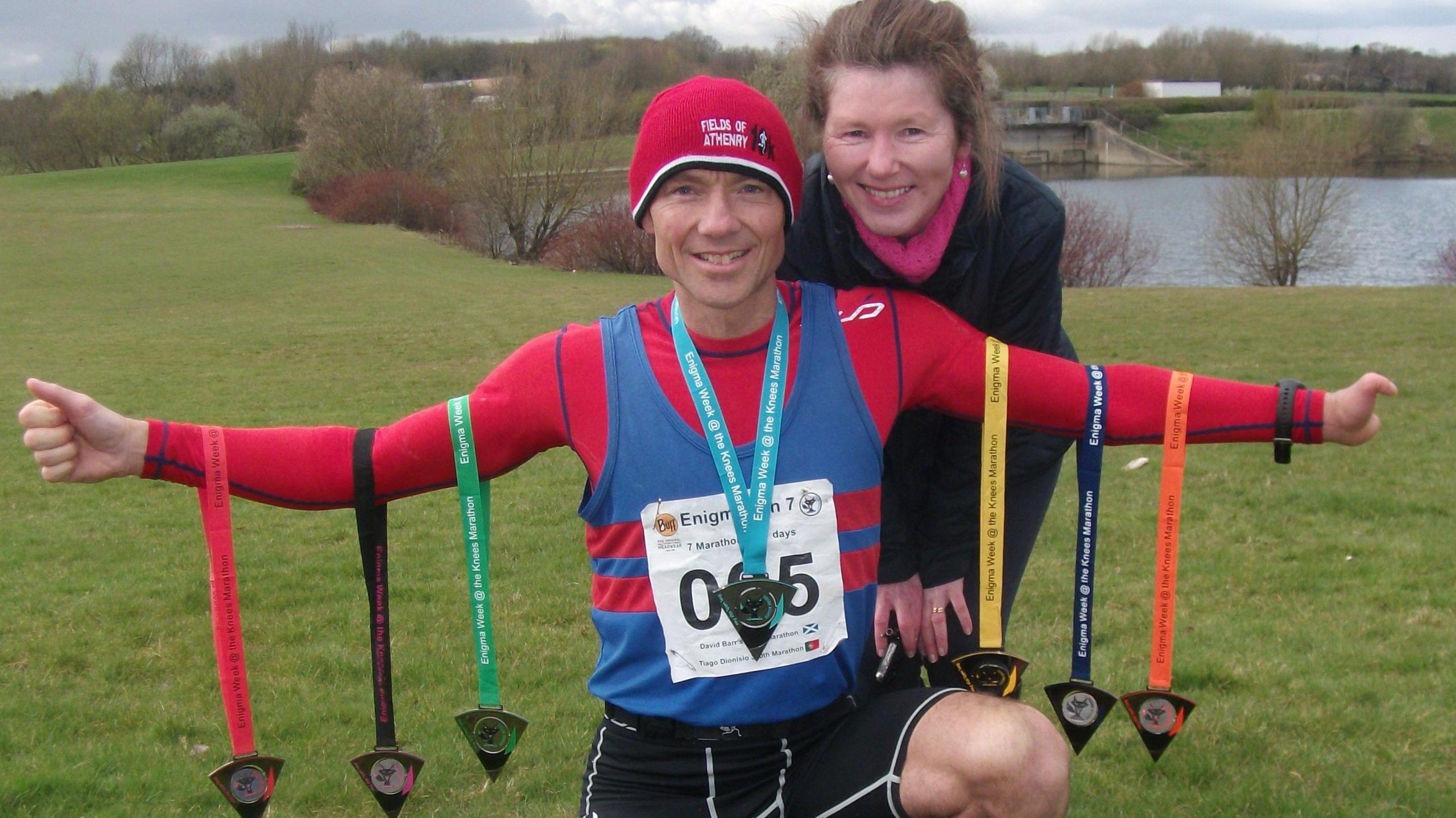
Steve says his wife Teresa is his "biggest supporter" and that he could not have completed his challenges without her
Organisers of the Milton Keynes Marathon have announced a new award in recognition of the "commitment shown by Steve and Teresa".
The 'Team Edwards Lifetime Achievers Award' will be given to a runner every year who has shown devotion to the sport.
During his marathon-running career, Steve has gone through 100 pairs of shoes, travelled as far afield as New Zealand and raised tens of thousand of pounds for charity.
"Personally, I want to look back and know that I achieved my potential," he says.
"I want to be able to look in the mirror and say 'You gave every race your best on that particular day'. And hopefully that will leave a little legacy that demonstrates that, with hard work and dedication, you can achieve your dreams.
"I often look back and think 'Gosh, if I'd never run that first marathon or seen that poster, where would my life had gone?'"
Follow East of England news on Facebook, external, Instagram, external and X, external. Got a story? Email eastofenglandnews@bbc.co.uk, external or WhatsApp us on 0800 169 1830
Related topics
More on marathon running
- Published26 April 2024
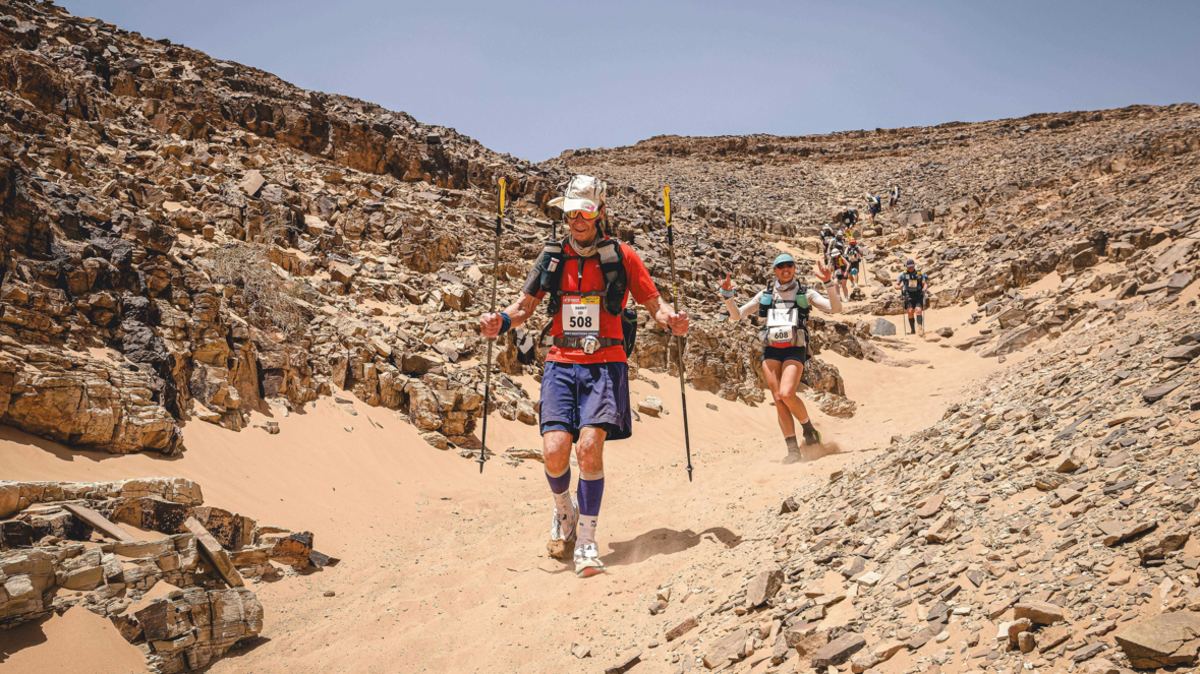
- Published24 March 2024
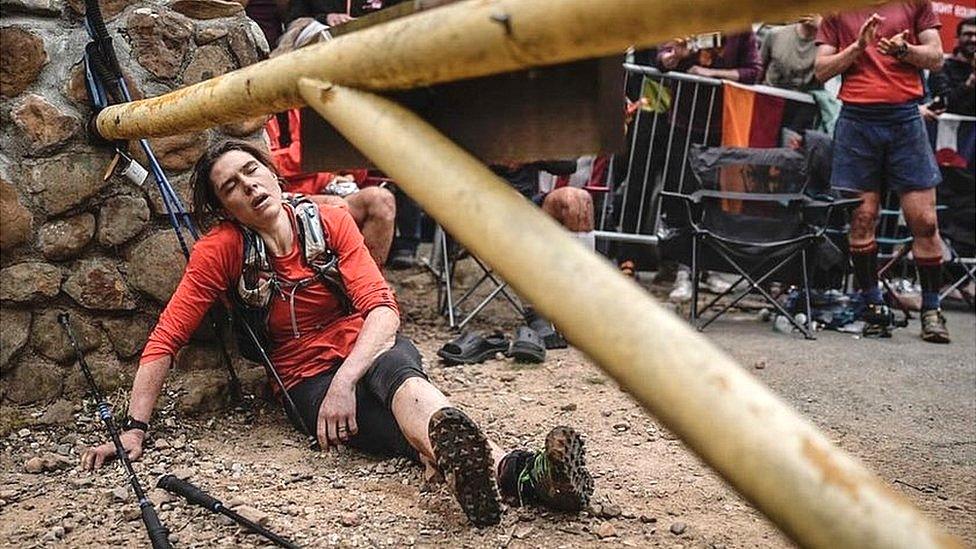
- Published22 April 2024
